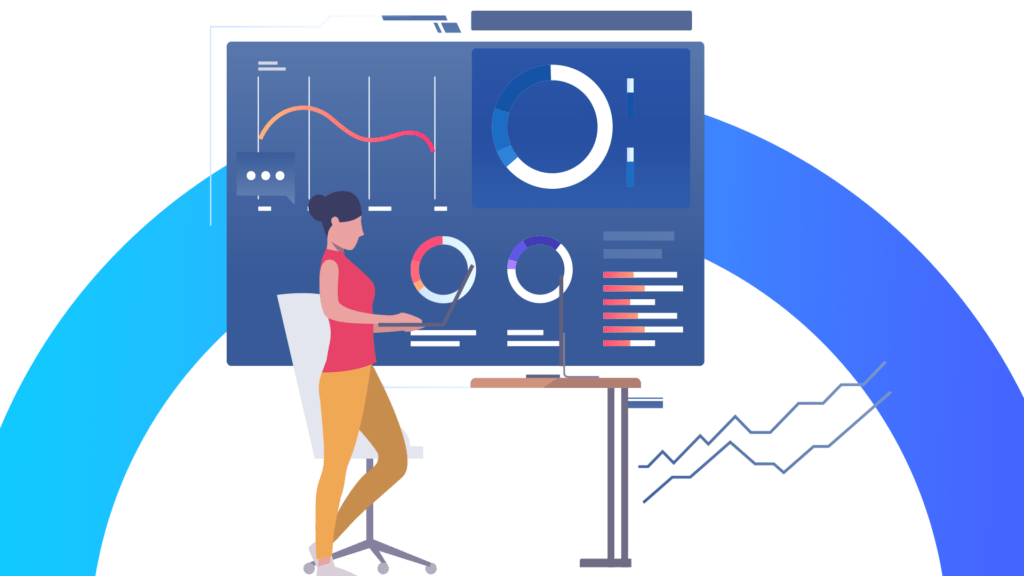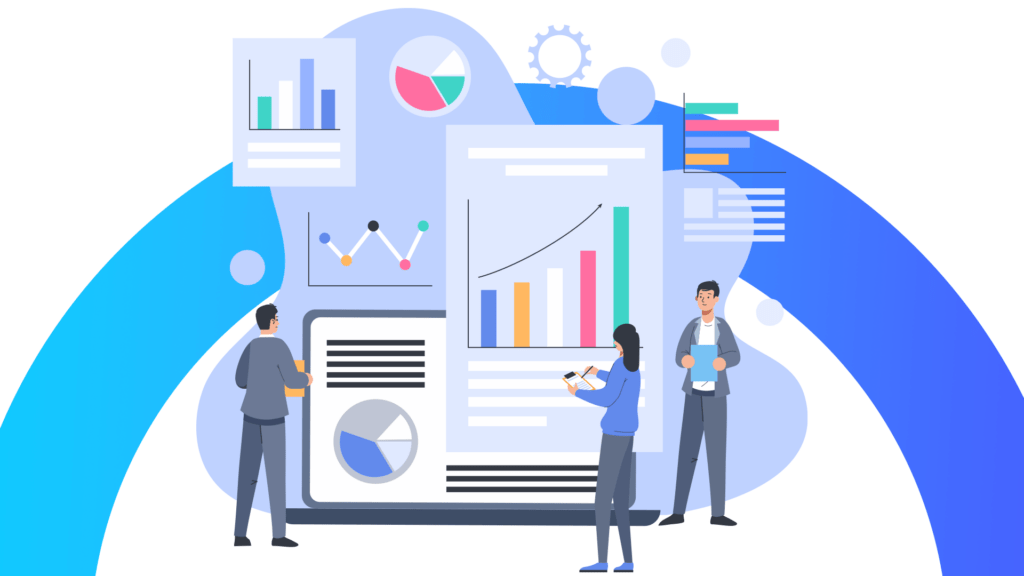In today’s time, leveraging big data analytics is no longer optional—it’s essential for staying competitive. Discover how giants like Amazon and Marriott are using big data to dominate their industries.
Significance of big data analytics

But before we begin, let’s answer the question: What is big data?
The term big data pertains to huge sets of digital data, which can be structured, unstructured, or semi-structured. These need to be analyzed in order to reveal trends, patterns, and associations related to customer behavior and interactions. Such analysis can also be done by manufacturers when dealing with large amounts of data from their machines, processes, and supply chains.
Why do you need big data analytics and how does it work?
There comes a point for organization, an increase in the 3 V’s of data – volume, variety, and velocity, can no longer be tackled through traditional databases. These data management challenges need a robust data analytics tool to aid faster decision-making and problem-solving. Furthermore, its potential to identify areas of business development and even new business opportunities is unparalleled.
So why do you need it? Because we have seen how the world’s largest and most successful brands have utilized big data to benefit their core business. Now we understand what big data is, and how big data analytics work. Let’s discuss a few and see how big data has sparked unique areas of success for these businesses.
1. Amazon
Amazon, the leading e-commerce platform, is predicted to reach a 50% market share at the end of 2024. It uses big data technology to optimize customer experience, supply chain, and other operational facets.
By collecting 1 exabyte of historical data from its customers, Amazon drives sales, personalizes product feeds, and implements dynamic pricing. Such consumer data is gathered through its highly effective data collection programs. This data comes from the customer’s use of services, such as its online marketplace, Alexa, and Kindle, to name a few, and through third-party providers.
They further use predictive analytics to optimize their target marketing campaigns. Through its personalized recommendation system, it makes better predictions about user likes and dislikes. These predictions are based on, but are not limited to, customers’ purchasing patterns from recent buys, wish list items and shopping cart saves.
Amazon also employs big data analytics to achieve supply chain optimization. By connecting with manufacturers and using data to track their inventories, they ensure quick order fulfillment. By locating the closest warehouse to a customer, it utilizes big data analytics to reduce the overall shipping costs. Similarly, Amazon achieves price optimization and additional purchases per order through data analytics.
2. Marriott International
Marriott has been seen to use big data analytics, to forecast demand and determine the optimum charges for their services. Being no stranger to using data to guide its decisions, Marriott initially adopted a Revenue Optimization System. Its integrated data from both internal and external sources and suggested optimal prices. This was based on the results of its real-time data analysis and demand forecast.
Later, using unstructured and semi-structured datasets, Marriot adopted a big data insights solution to rapidly analyze early-stage data patterns and scale new services globally.
Furthermore, the Marriot Bonvoy platform utilizes big data analytics and AI, resulting in faster-targeted marketing, competitor monitoring, and tailored customer services.
3. Bosch
Bosch, the automotive parts manufacturer, makes use of big data analytics to increase quality control within its manufacturing processes. It analyses data from sensors on production equipment as well as monitors products through manufacturing. This allows for the detection of potential imperfections and immediate correction. Resultantly, waste is cut down, and the quality of products is enhanced.
Bosch has created a robust big data analytic system to aid Bosch’s big data projects, which include advanced tools for analytics and platforms. It uses a variety of technologies, such as machine learning, natural language processing, deep Learning, and natural language processing, to efficiently and precisely analyze huge amounts of data. And this utilizes cloud computing to keep and process data, allowing the company to increase its analytics capabilities as required.
It is crucial to stress the fact that big data analytics has become an essential tool to benefit the company in the game, from optimizing manufacturing processes to creating new services and products.
4. UPS
Another global package delivery and logistics giant, UPS, has been utilizing big data analytics to enhance its supply chain operations. UPS used big data to get insights into customer behavior, optimize delivery routes, and streamline overall operations.
Using big data analytic to track package data such as destination, weight, and location, UPS reduces delivery time and ensures optimum routes. Furthermore, it uses behavioral and preferential data to generate new ideas, such as offering faster delivery options and providing real-time updates. The result? Heightened operational performance and efficiency.
UPS also maintains its service levels and minimizes downtime by collecting and analyzing data from its warehouses, vehicles, and distribution centers. By using big data analytics to drive business efficiency, UPS maintains its competitive advantage.




